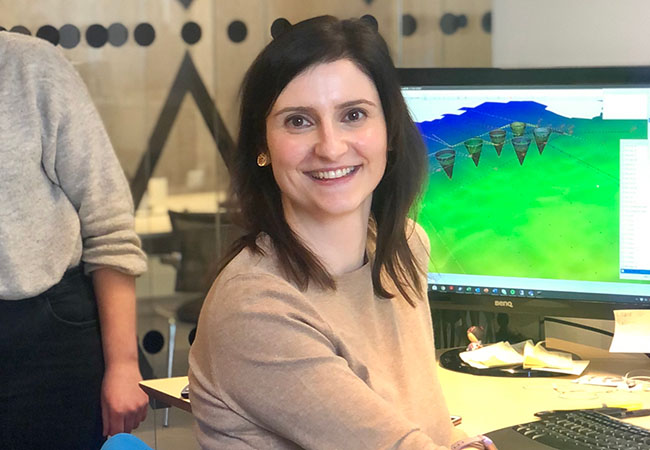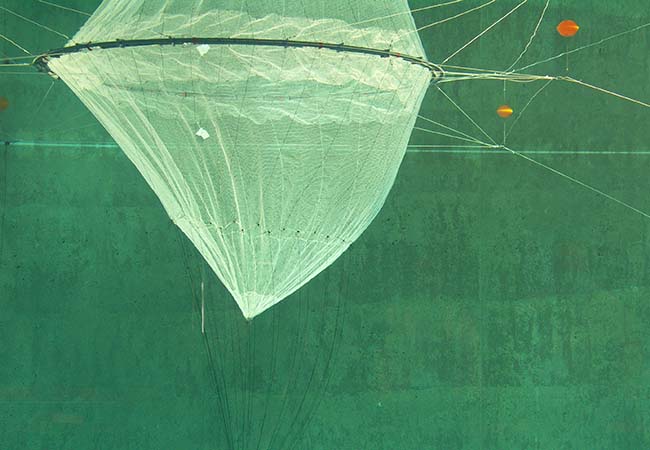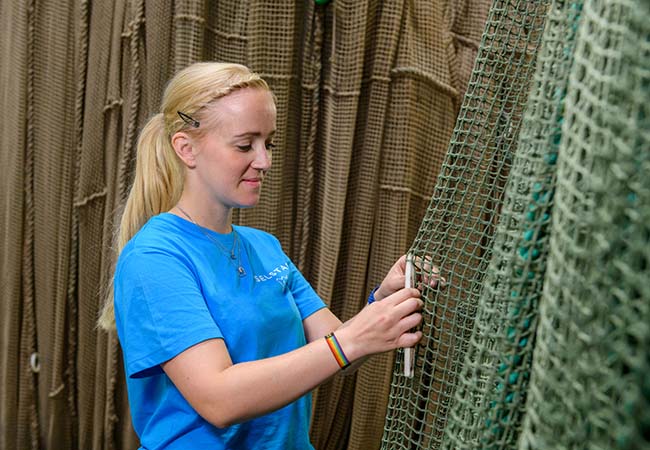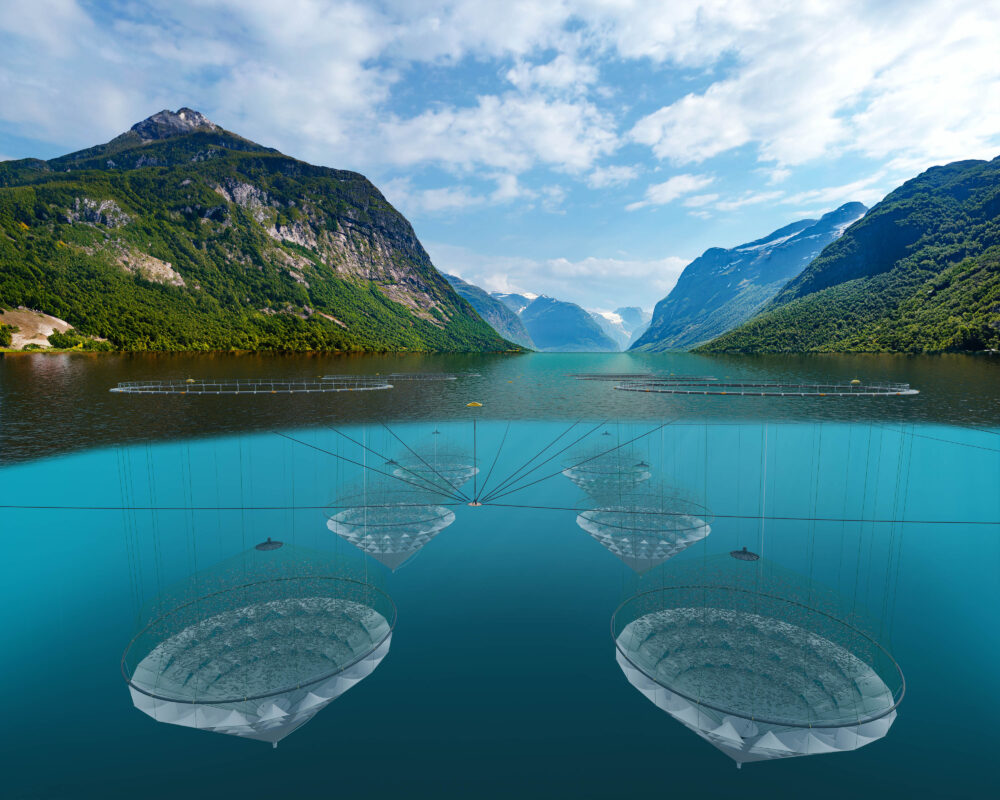We produce fish farming cages in all sizes and designs, and adjust the solutions to accord with your wishes and our recommendations. All of our fish farming cages are certified with respect to NS9415:2021, and our analysts perform class 0 analyses when this is required.

Design
We always design fish farming cages in accordance with your desires, and combine them with our own experiences and specific requirements for the system. During the design process we evaluate and analyse how exposed the location is with respect to its weather and waves, and precisely what type of ring the cage should sit in. We adapt the cages for the ideal perimeter and depth, as well as the type and size of the fish that will be in the cage. In this regard we also assess what the correct choice of materials will be for those who will be managing the cages while in operation. At present two types of cages are primarily used in aquaculture: circular cages and conical cages, but we also supply rectangular cages and spagetti cages. For each of these types of cages, there are a large number of variations and special designs, and we are committed to finding the correct design and choice of materials for you.
We offer circular, spaghetti, conical and rectangular cages in materials such as nylon, HDPE, Dyneema® and UHMWPE. All our cages are certified in accordance with NS9415:2021.
Our circular, spaghetti, conical and rectangular cages can be produced with the following nettings:
Nylon is a knot-free netting that can be delivered in the colours white and black. The netting is boiled before its production is completed in order to limit shrinkage effects.
Ultra-High Molecular-Weight-Polyethylene (UHMWPE) netting features an extremely high breaking strength in comparison to nylon with regards to its strand thickness. This has a positive result on both the weight of the cage and the solidity in the netting. UHMWPE netting it is a knot-free material that can be impregnated and produced in white or black colours.
HDPE netting with knots that is extremely well-suited for localities with predator challenges. This type of netting has limited shrinkage compared to nylon. The netting is blue in colour and cannot be impregnated.
HDPE netting with knots and a steel core makes it well-suited for sites with predator challenges. The shrinkage of HDPE is limited compared to nylon.
Knotless HDPE netting is well-suited for washing and has a limited shrinkage effect compared to nylon. The netting requires a higher strand thickness than nylon, UHMWPE and HDPE with knots in order to attain an equivalent breaking strength.


In addition to these selected materials, Selstad is also able to offer netting in other materials – such as HDPE netting with knots outside the steel core.
The cages are delivered complete with user handbooks and packed in accordance with the customer’s needs in order to ensure effective and safe setting out.
Product development
At Selstad we place a strong emphasis on innovative solutions with the designs and materials for our fish farming cages. Since our entry into Norwegian aquaculture in the middle of the 1980s, we have had a strong emphasis on product development through the use of new materials and designs in order to ensure high-quality functional solutions.

Deep Sea Farming
By going farther down deep into the ocean, the sealice infestation is dramatically reduced.
Our solution for deep sea farming will provide much improved living conditions for the salmon by significantly reducing the effects of lice treatment and handling, to avoid damage to their health. Other advantages include stable temperatures and less movement in the sea.
Are you considering investing in deep sea farming? Our solutions can be customised to each individual customer, and we can re-engineer existing cages to be used for deep sea farming.
Contact us for more information and learn how we can assist you in investing for better operations and predictable fish health.

